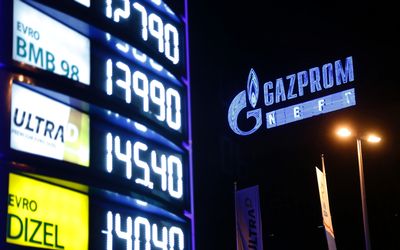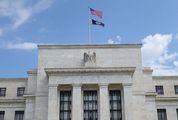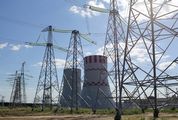Gas and oil: shifting power in Russia
by Stephen Bierman,
2016-03-15 05:51:21.0
MOSCOW — The two energy companies at the heart of Russia’s economy are on the verge of a historic reversal that could shift the balance of power in the Kremlin’s corridors subtly.
Gazprom, the world’s largest natural gas producer, is worth just $3.3bn more than Rosneft, Russia’s biggest oil company. That premium, down from more than $250bn in 2008, may disappear altogether as the five-year slide in Gazprom’s market value continues, according to analysts from Otkritie Financial Corp, Aton and Raiffeisen Bank.
"Rosneft may catch up with Gazprom by market value as early as this year," said Andrey Polischuk, an analyst at Raiffeisen Bank in Moscow. The state-run gas exporter faces rising competition and the lowest prices in more than a decade in its main European market, on top of billions of dollars of spending commitments on new pipelines, he said.
Since President Vladimir Putin came to power in 1999, he has used development of the nation’s oil and gas wealth to rebuild after the economic collapse of the 1990s. In the process, the twin state-run giants have become entrenched at the centre of the country’s economy and political system.
Gazprom’s press service declined to comment on market value estimates, adding that "in the long-term perspective, Gazprom will keep its financial stability" while implementing all key investment projects.
Rosneft did not respond to a request for comment.
Taxes and duties paid by the two producers account for about 30% of the nation’s budget, according to Bloomberg calculations based on the companies’ data. They spend tens of billions of dollars each year on pipelines, ports, transport, drilling and other services that drive Russian industry.
Gazprom CEO Alexey Miller andRosneft boss Igor Sechin — allies who followed Mr Putin to Moscow from the St Petersburg mayor’s office — wield considerable influence in the Kremlin. Yet sometimes, they also clash as each company pursues its own interests.
"It’s a competitive world,"said oil and gas analyst Artem Konchin. "We’ve seen them scrutinising each other’s tax return bills, contribution to the budget, dividend policies, quarterly reports."
Bloomberg

A neon sign displays Gazprom's logo at a petrol station in Belgrade, Serbia, in January this year. Picture: BLOOMBERG/OLIVER BUNIC
MOSCOW — The two energy companies at the heart of Russia’s economy are on the verge of a historic reversal that could shift the balance of power in the Kremlin’s corridors subtly.
Gazprom, the world’s largest natural gas producer, is worth just $3.3bn more than Rosneft, Russia’s biggest oil company. That premium, down from more than $250bn in 2008, may disappear altogether as the five-year slide in Gazprom’s market value continues, according to analysts from Otkritie Financial Corp, Aton and Raiffeisen Bank.
"Rosneft may catch up with Gazprom by market value as early as this year," said Andrey Polischuk, an analyst at Raiffeisen Bank in Moscow. The state-run gas exporter faces rising competition and the lowest prices in more than a decade in its main European market, on top of billions of dollars of spending commitments on new pipelines, he said.
Since President Vladimir Putin came to power in 1999, he has used development of the nation’s oil and gas wealth to rebuild after the economic collapse of the 1990s. In the process, the twin state-run giants have become entrenched at the centre of the country’s economy and political system.
Gazprom’s press service declined to comment on market value estimates, adding that "in the long-term perspective, Gazprom will keep its financial stability" while implementing all key investment projects.
Rosneft did not respond to a request for comment.
Taxes and duties paid by the two producers account for about 30% of the nation’s budget, according to Bloomberg calculations based on the companies’ data. They spend tens of billions of dollars each year on pipelines, ports, transport, drilling and other services that drive Russian industry.
Gazprom CEO Alexey Miller andRosneft boss Igor Sechin — allies who followed Mr Putin to Moscow from the St Petersburg mayor’s office — wield considerable influence in the Kremlin. Yet sometimes, they also clash as each company pursues its own interests.
"It’s a competitive world,"said oil and gas analyst Artem Konchin. "We’ve seen them scrutinising each other’s tax return bills, contribution to the budget, dividend policies, quarterly reports."
Bloomberg





















Change: 0.83%
Change: 0.93%
Change: 0.95%
Change: 0.73%
Change: 1.91%
Data supplied by Profile Data
Change: 0.58%
Change: 0.43%
Change: 0.83%
Change: 0.00%
Change: 0.56%
Data supplied by Profile Data
Change: -1.67%
Change: -0.90%
Change: -0.65%
Change: -1.21%
Change: -0.47%
Data supplied by Profile Data
Change: 2.49%
Change: 2.09%
Change: 2.30%
Change: 2.29%
Change: 3.39%
Data supplied by Profile Data